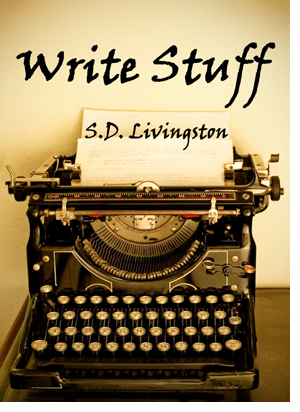 In some pursuits, quality and speed go together. Like winning Olympic gold on the 1000-metre short track?or taking the Triple Crown. But in other endeavours, like writing, speed often works against quality. So It’s a surprise to find this recent advice from a literary type himself, a New York Times book critic: if You’re not cranking words out fast enough, readers won’t wait for you.
In some pursuits, quality and speed go together. Like winning Olympic gold on the 1000-metre short track?or taking the Triple Crown. But in other endeavours, like writing, speed often works against quality. So It’s a surprise to find this recent advice from a literary type himself, a New York Times book critic: if You’re not cranking words out fast enough, readers won’t wait for you.
The article, by Dwight Garner, offers a vivid mental image of the destiny that awaits talented but deliberate authors. The reader, no matter how much he enjoys your work, will only remain loyal for so long. You might be the next Hemingway but, as Garner suggests, ?if you and your peers wish to regain a prominent place in the culture, one novel a decade isn’t going to cut it.?
In some ways, the logic makes sense. We live in a world of hyperactive, non-stop exposure. This year’s hot young stars must stay in the public eye or risk being replaced by eager newcomers. Writers, no less than other artists, need to connect with their audiences. But to suggest that readers will abandon quality in favour of quantity not only ignores several classic examples to the contrary, it insults the very people writers and publishers aim to please.
Suppose you have a favourite author. You love her work. It speaks to you, illuminating and clarifying issues in your life. You’ve read and reread all her novels, and eagerly await a new release. So what if it takes 10 years to complete? Should we really believe that readers have become so impatient, so fickle, that when a long-awaited title hits the stores, they’ll turn up their noses and say, ?Sorry, we’ve moved on to someone who cranks out books every six months??
It’s a bit like saying that no one would be interested in the Eagles? Hell Freezes Over tour because it took them 14 years to get around to it. As a reader, I’d like to think that my favourite authors give me a little more credit than that?and that they trust my loyalty enough to take their time and get it right.
The quantity-equals-relevance argument also stumbles in the face of these four words: To Kill a Mockingbird. In his Times article, Garner quotes Gore Vidal on the subject of writer’s block: ?You’re not meant to be doing this. Plenty more where you came from.?
I’ve never met Harper Lee, and I can’t say whether She’s suffered from writer’s block. But her one and only completed novel, the classic To Kill a Mockingbird, is one of the most relevant social commentaries of our times. Its importance has not diminished over the years, and has not been lessened by its status as the author’s sole completed work?or by her desire to remain far from the limelight. Thank Calliope that Harper Lee decided that she was, indeed, ?meant to be doing this.?
Perhaps instead of urging writers to work more prolifically, we should rely on their instincts to know when a work is complete?and trust their readers to wait.


